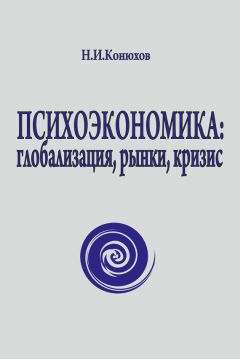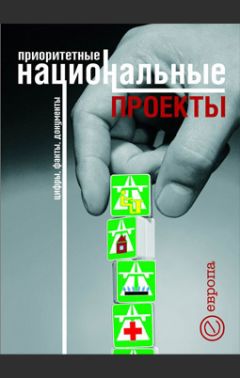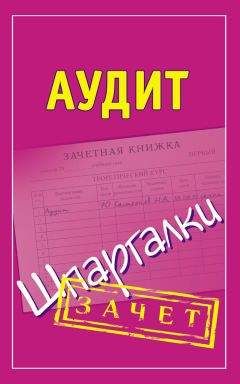Николай Камзин - The implementation of the economic cycle: freedom, trust, duty
Все авторские права соблюдены. Напишите нам, если Вы не согласны.
Описание книги "The implementation of the economic cycle: freedom, trust, duty"
Описание и краткое содержание "The implementation of the economic cycle: freedom, trust, duty" читать бесплатно онлайн.
Existentialism proclaims the idea of a man present, performing a search for meaning, making choices, self-determining in its relation to reality, possessing an active subjective entity. In the process of economic activity a person is faced with the action of their own will influence other areas of the will of the active agents. He needs arise that require his satisfaction, he is involved in the economic cycle, some of which sectors are investigated in this study, namely: entrepreneurship, as a consequence of the implementation of a new combination of natural factors, business risk as a source of entrepreneurial profit and a catalyst for economic activity, business as routine economic activities aimed at developing the existing building, international business, as economic activity is possible at a potential that is created by public constraints, international payments, as the movement of financial resources for a business, writ proceedings, as inevitable, the procedure of execution of mutual obligations with the participation of the public entity, collateral relations, as security relationships that create a safety buffer for the counterparty.
4.3. Deal with an option
In contrast, forward transactions with exact delivery date, united by the concept of «outright» (outright), option (a choice) does not fix the date of delivery. Distinguish between temporary options, options buyers and sellers. In all cases we are talking about the fact that one party pays the other an additional premium, but instead gets some special right. In the temporary option, for example, the right timing of currency supply. The bank sells foreign currency to the client on the forward rate «+» an extra bonus with the deadline for delivery. But the customer gets the right to demand payment at any time during a fixed period. Such an option could be very advantageous for particular variations in market exchange rates.
If the option is received (for a premium) the buyer, then as a matter of choice may be, and the right to refuse to accept the exchange of goods. Here, premium – premium plays the role of compensation. Right out of the deal for the forward period, and may belong to the seller who pays a premium to the buyer.
4.4. Transaction «swap»
Today, the transaction «swap» – is the purchase or sale of currency under a fixed exchange rate, but at the same time the conclusion of the reverse forward transaction, and payment terms are usually not the same (deal «sell-buy» in the jargon of the foreign exchange market). The swap transaction is used to cover the currency risk, as well as a possible gain in the future.
For example, somebody buys dollars for rubles a month for delivery and immediately makes a deal to sell them. Forward selling rate (is percentage price premium dollar) is the subject of the contract.
For interbank relationships swap transaction – an exchange of obligations or requirements, a form of insurance against risk, diversification, and replenish reserves.
The swap agreements between central banks are foreign currency exchange amounts (loans) to the short term, the exchange, which decays to the acts of buying foreign currency (for the target of intervention) and resell foreign currency.
Such agreements are common between the U.S. Federal Reserve and central banks of European countries. European Monetary Cooperation Fund – a prototype of the European Central Bank – interacted with the participants of the European Community based on three-month renewable constantly swap agreements.
Swap transactions are widely used in the monetary and credit transactions to profit from the difference in interest rates, in transactions with other valuables, including gold.
4.5. Interest arbitrage
In practice, often there are situations when interest rates suddenly rise or fall, and the forward market has not reacted to them. Here lurk the richest opportunities for application of interest rate arbitrage: buying the currency of a country on the spot rate and selling it for a fixed rate with an additional profit arising from the difference in percentage. An arbitrage profit is temporary – it disappears when the change in forward rate equalizes competitive conditions.
4.6. Currency futures
Futures emerged in the form of contracts for the supply of food and raw materials at an agreed price by a certain date. The contracts themselves are traded on commodity exchanges. The list of «real» content of futures extended. In Russia, the common three-month futures contracts for delivery of petroleum and petroleum products.
A futures contract is the stock market where buy and sell packages of securities (treasury bills and bonds), deposits, foreign currency. The main mass of this financial future is a three-month currency future. Exposing the financial futures market, brokers usually inform the date of the contract and payment and interest rates. The benefit will depend on the buyer to exchange rate, which is made a contract, and interest on short-term bank deposits.
4.7. Exchange risk insurance
With the expansion of foreign exchange transactions in the general instability of monetary circulation is becoming urgent need for insurance of risks relating to exchange rate fluctuations. The system of measures to reduce currency losses called «hedging» (hedging – fence).
Forwards, options, swap transactions, futures – are the natural methods of short-term hedging. It is in itself a dual role of foreign exchange operations – profit and loss insurance. Banks seek to carry out operations to undesirable exchange rate changes, explore the possibility of compensation due to parallel or pre-emptive monetary actions.
Hedging through forward transactions involved in the Russian Vnesheconombank. He established a list of hard currency, which was carried out exchange risk insurance, the warranty period, the rates of commission.
Apart from hedging operations through currency, there are methods of direct insurance risks:
– Structural balance reserves. If the bank there are open positions on a range of currencies (and without that banks and other commercial structures practically cannot live), you should carefully monitor these rates so that the anticipation of devaluation, in time to the conversion of a declining currency, as well as get rid of unreliable stock values[39].
– Manipulation of payment deadlines (leads and lags – lead and lag). When the expected sharp changes in exchange rates, the banks seek to manipulate the timing calculations: if the expected appreciation of the currency of payment, apply for early payment, and vice versa if you are going to depreciate, the payment delay. Such measures are used to pay for goods and services, transfer of profits, repayment of loans or interest payments, etc.
– Discounting of bills in foreign currency is a form of insurance of foreign trade, in which the bank assumes the risk of currency fluctuations, and the debtor's insolvency. Bill discounting is used in long-term transactions (for example, deliveries of investment goods).
There are other private forms of hedging: the formation of the bank and its customers of the insurance fund, inclusion in a trade or credit transaction so-called «multi-currency clause», implying the possibility of revising the currency of payment, consultancy services on part of the hedge, which the bank provides its customers, etc.
5. International settlements
5.1. The concept and means of international settlements
International operations – is the regulation of payments for monetary claims and liabilities arising from economic, political, scientific, technological and cultural relations between states, organizations and citizens of different countries.
Calculations carried out mainly by means of transfer in the form of entries in bank accounts. For this correspondent on the basis of agreements with foreign banks open correspondent accounts with banks «Loro» (through foreign banks in domestic credit institution) and «Nostro» (by the bank in a foreign bank).
Correspondent relations determine the order of payment, the fees, and methods of replenishment spent.
Since there is no global credit money taken in all the countries in the international accounts are used mottos – means of payment in foreign currency. Among them:
– Commercial bills of exchange (draft) – written orders for the payment of a sum certain person in a certain period, exhibited by exporters on foreign importers;
– Normal (ordinary) bills – debt obligations of importers.
– Bank bills – bills, bank exhibited this country to their foreign correspondents. Depending on the reputation of the banks' sphere of circulation of their bills is wider than commercial paper. Buying bank bills, importers exporters send them to repay their obligations.
– Bank Check – a written order to the bank to your bank – correspondent on the transfer of certain amount from its current account abroad to the check holder.
– Bank transfer – postal and telegraphic transfers abroad.
– Bank Cards – registered vouchers that entitle holders to use them to purchase goods and services on a cashless basis.
The system of international payment transactions using the so-called correspondent relationships with banks in other countries – the most common form of the transactions undertaken by commercial banks in the long-term philosophy[40].
Along with the national currencies of the leading countries used international currency unit – Euro and in a small amount of SDRs.
Gold, which is directly under the gold monometallic used as an international payment and means of purchase, in fiat credit money is used only as emergency money in the world of unforeseen circumstances. State if necessary resort to selling part of the official gold reserves of those currencies in which they expressed their international obligations. Thus, gold has been used for international payments indirectly through operations in the gold markets[41].
5.2. The mechanism of international settlements
Trade implies equivalence, so transfer the object of trade is always accompanied by what lawyers call consideration[42]. Foreign contracts provide for the transfer of goods, or documents that are forwarded by the bank of the exporter or importer's bank to the bank of the country – the payer to pay in a timely manner. The calculations are carried out by various means of payment used in international circulation: bills, checks, money orders, wire transfers.
When paying with foreign buyers interested exporter to export proceeds for goods and services as quickly as possible came to his account. It depends not only on the forms, but also on the types of calculations. Types of calculations used in the global foreign trade practices, are as follows:
– Payment in cash;
– Calculation of credit;
– Mixed (combined) calculations[43].
Schematically, the mechanism of international payments is as follows:
– The importer buys from a bank wire transfer, cashier's check, promissory note or other payment document and sends the exporter;
– Exporter receives payment from the importer, this paper and sells it to his bank for local currency, which it needs for production and other purposes;
– The exporter's bank sends abroad its correspondent bank payment document;
– From the sale of this document, amount of foreign currency is credited by the bank of the importer to exporter's bank's correspondent account.
This mechanism allows for international settlements through correspondent banks by offsetting counterclaims and obligations without the use of cash.
Banks tend to support the necessary foreign exchange positions in different currencies according to the structure and timing of payments, as well as carrying out monetary and financial conditions and payment of foreign trade transactions include the following elements:
– Exchange rates, the choice of which along with its level, the interest rate and currency exchange rate depends on the degree of efficiency of the transaction;
– The currency of payment, which must be repaid the obligation of the importer (or borrower); mismatch of currency rates and currency of payment – the simplest method of exchange risk insurance;
– Payment terms – an important element of foreign trade transactions. Among them are distinguished: cash payments, payments to a loan, a loan with an option (the right to choose) cash payment.
By cash international settlements are settlements in the period from the date of readiness of the exported goods to the transfer of documents of the importer.
Provision of credit has a definite influence on the conditions of international payments. If his calculations are carried out after the international transfer of goods in the ownership of the importer, exporter that lends it’s usually in the form of issuing a bill. If the importer pays for goods in advance, he credits the exporter.
Loan with an option for cash payment, if the importer, exercise the right of deferral of payment for goods purchased, he is deprived of discounts offered by cash payment.
5.3. The main forms of international settlements
To link the opposing interests of counterparties in the international economic organizations and their payment relationship apply various forms of payment.
The choice of methods of payment depends on:
– Type of product;
– Availability of credit agreement;
– The solvency and reputation of counterparties for foreign economic transactions.
The contract specifies the conditions and methods of payment.
– The collection form of payment – the client's order to the bank on receipt of payment from the importer of goods and services and placement of these funds to the exporter's bank. Banks perform collection operations, using the instructions received from the exporter in accordance with the Uniform Rules for Collections.
– Letter of credit – an agreement on the obligation of the bank at the request of the customer to pay for the documents, accept, or (negotiate) a bill in favor of a third person (beneficiary) to whom a letter of credit.
The procedure for this form of payment is regulated by the Uniform Customs and Practice for Documentary Credits. The letter of credit (especially irrevocable and confirmed) to a greater extent than the collection ensures timely payment.
However, this is the most complex and expensive form of payment, the importer in this case has to reserve the amount of credit or use credit bank.
– Bank Transfer – order one bank to another to pay the payee (beneficiary) a certain amount. It involves:
– Originator – the debtor;
– A bank, took the assignment;
– The bank that executes instructions;
– Payee.
In international transactions often take the transferor bank customers. In the form of transfer payments made collections, advance payments recalculated. Bank transfers are often combined with other forms of payment, as well as the guarantees of banks.
The instruction specifies a way to recover the bank of the payer amount paid to them. Payee bank is guided by specific instructions contained in the payment order.
– Advance payment – the payment of goods importer in advance of shipment, and sometimes to their production (for example, the import of expensive equipment, ships and aircraft). In contrast to international practice, where advance payments are 10 – 33% of the contract, in Russia they reach 100%. Thus lend importers of foreign suppliers. Consent of the importer at a pre-payment due either to his interest, or the pressure of the exporter.
– Calculations on open account – settlements providing for periodic payments in a timely manner at the importer to exporter of regular supplies of goods on credit to this account. These calculations are most beneficial to the importing and practices of trust and long-term relationship with a foreign supplier.
The seller delivers the goods with no guarantee of payment, the buyer transfers money to the payment date. The seller does not receive any guarantees from the buyer. Therefore, such terms of payment are possible only in one country or between firms that know each other well and in foreign trade are rarely encountered.
The peculiarity of this form of payment is that the movement of goods a head of the movement of money. Calculations related to commercial loans. In fact, this form of payment used for lending to the importer.
– Calculations based on bills, checks, bank cards – international payments, which apply transferable and regular bills. For the payment of a bill acceptor is responsible (importer or the bank), consenting to pay it. A uniform law a bill (1930) governs the form, details, and the terms of billing and payment of bills.
Подписывайтесь на наши страницы в социальных сетях.
Будьте в курсе последних книжных новинок, комментируйте, обсуждайте. Мы ждём Вас!
Похожие книги на "The implementation of the economic cycle: freedom, trust, duty"
Книги похожие на "The implementation of the economic cycle: freedom, trust, duty" читать онлайн или скачать бесплатно полные версии.
Мы рекомендуем Вам зарегистрироваться либо войти на сайт под своим именем.
Отзывы о "Николай Камзин - The implementation of the economic cycle: freedom, trust, duty"
Отзывы читателей о книге "The implementation of the economic cycle: freedom, trust, duty", комментарии и мнения людей о произведении.











